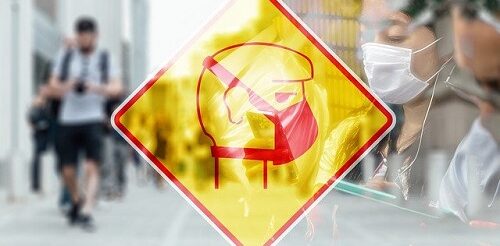Human behaviour critical to pandemic & cyber modelling: CyberCube

A new report by cyber analytics provider CyberCube stresses the importance of understanding and predicting human behaviour when it comes to modelling both pandemic and cyber risk.
 According to the report, which sets out to understand the lessons both pandemic and cyber modelers could learn from each other, the potential for political decisions and the public’s response to affect the duration and severity of both types of events is critical to successful modeling.
According to the report, which sets out to understand the lessons both pandemic and cyber modelers could learn from each other, the potential for political decisions and the public’s response to affect the duration and severity of both types of events is critical to successful modeling.
Specifically, CyberCube highlights the challenge of how to illustrate the range of outcomes based on individual and societal reactions that impact on the spread of the disease or cyber threat.
Analysts also pointed to a lack of data is a brake on progress for both types of modelers, owing to a lack of significant pandemic and systemic cyber events.
“It’s clear that lessons can be learnt and applied to cyber risk modeling from understanding how pandemic models have evolved,” said Oli Brew, CyberCube’s Head of Client Success.
“As the COVID-19 pandemic continues, even though there are differences between computer and human viruses, parallels are emerging in the modeling, the methodologies and the data challenges,” Brew continued.
“There is real value in learning from interdisciplinary teams in how to balance the needs of accuracy and precision in developing models to meet the market needs. At a minimum, the need for a creative, but reality-based imagination to represent forward-looking risks is critical.”
The CyberCube report also included comments from Munich Re and Metabiota, who offered their thoughts of the challenge of modelling pandemic and cyber risks.
Hjalmar Böhm, Senior Actuary at Epidemic Risk Solutions, a dedicated epidemic risk solutions business unit at Munich Re, commented: “In both cyber risk and pandemics, there is a need to consider accumulation risk. For example, a pandemic is a key consideration for life insurers and a high mortality event could create significant economic loss.”
“A solid approach to controlling accumulation risk exposure needs to be the basis for every business model for epidemic risk insurance.”
Nita Madhav, CEO of Metabiota, added: “There are parallels with modeling the global spread of a disease and how cyber systems are connected – both are network issues. The impact of mitigation risk and early action can potentially make a difference. Furthermore, you can be asymptomatic with COVID-19; similarly, you may not know if a cyber intruder has already infiltrated your network.”
The report concluded that addressing limitations in data collection will improve the value and insight that models can provide to the re/insurance markets.
The post Human behaviour critical to pandemic & cyber modelling: CyberCube appeared first on ReinsuranceNe.ws.
